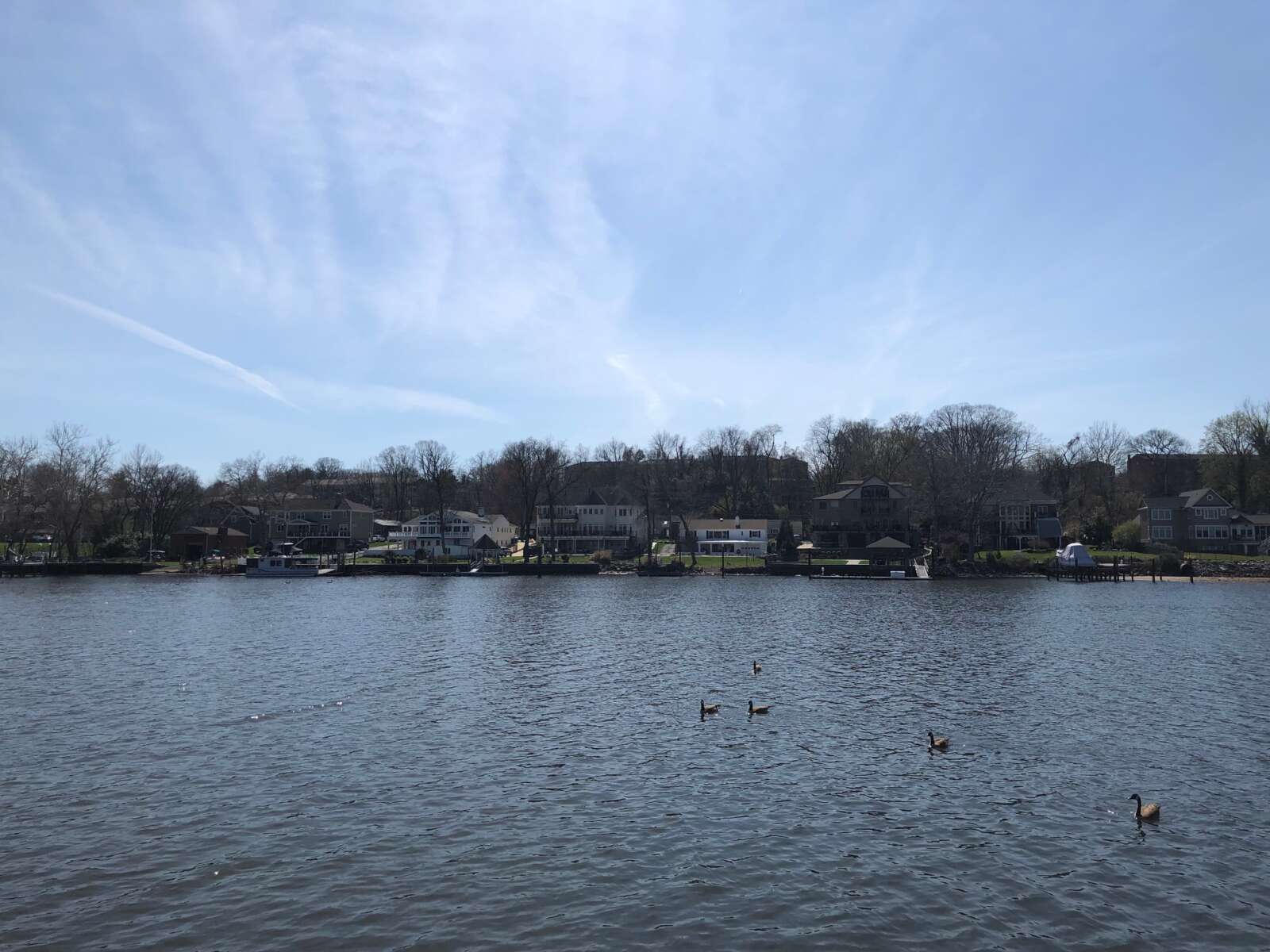
In the latest round of action on bills, Virginia Gov. Glenn Youngkin signed 100 bills passed by the Virginia General Assembly, including one to protect Virginians from unlawful discrimination, hate crimes and antisemitism. The governor vetoed four others, including one to create civil penalties for shop owners who fail to advertise they are selling invasive plants that could harm other species.
Among the 100 bills signed is a measure that will codify a recommendation by the Commission to Combat Antisemitism that Virginia revise its laws to better protect Jewish citizens from hate crimes, along with Muslims, Sikhs and other ethnic-religious groups.
Youngkin said the legislation aligns with one of his top priorities: combating antisemitism.
“As the first state to weave religious freedom into the fabric of our nation, Virginia is leading once again and sending a clear message that Virginians should not be the victim of a crime simply because of their religion, race, or ethnicity,” the governor said in an April 2 press release.
Sen. Bryce Reeves, R-Spotsylvania, and Del. Dan Helmer, D-Fairfax, carried the legislation, Senate Bill 7 and House Bill 18.
“I’m thankful for the governor’s signature and the bipartisan co-patrons of this important bill,” said Reeves in a statement. He added that legislation outlawing antisemitism isn’t just about protecting a particular group, but about “defending the fundamental values of equality, justice, and human dignity for all.”
Helmer, a descendant of Holocaust survivors and a Jewish man whose children “confronted antisemitism” in school, Helmer said the legislation is important to him.
“Hate has no place in our communities,” Helmer said in a statement, adding that he is grateful for the governor’s signature to “protect people of every ethnicity across the commonwealth.”
Other interesting pieces of legislation the governor signed into law include House Bill 143, which directs the Virginia Department of Transportation to create a publicly-accessible utility work database and map that details projects within state-maintained areas, excluding emergency maintenance and services to private properties. Another measure, House Bill 322, will create a Cosmetology Compact, which will allow people to be licensed to provide barbering, hair styling and other cosmetic services in Virginia and other states that join the compact initiative.
Vetoed legislation
The governor also vetoed four bills that would have required the state to adopt model public education policies on climate change and environmental literacy, permitted college instructors to request non confidential garnishment data for research purposes, and created penalties for shop owners who fail to identify invasive plants they sell.
In explaining why he rejected the bill on adopting model policies for climate change, the governor said the measure is already included in the Standards of Learning for students, and the proposal “imposes a significant and redundant task” on the Department of Education and the Board of Education. Read More

A committee in the Virginia House of Delegates on Friday advanced to the House floor a bill that would require localities to conduct water studies prior to approving data centers.
The bill, introduced by Del. Josh Thomas, a freshman Democrat who represents western Prince William County in the 21st District, would encourage local governments undergo site assessment to examine the effect of data centers on water usage, carbon emissions and agricultural resources.
Groups in Northern Virginia have long called for water studies to be conducted at the sites of proposed data centers, which use large amounts of liquid to cool the thousands of computers found within.
Data centers’ impact on local water sources was most notably questioned prior to the recent approval of the PW Digital Gateway tech corridor when the Fairfax County Water Authority sent a letter to Prince William County officials in 2022 asking that one be performed. To the dismay of anti-data center activists and environmental advocates, the county never performed a comprehensive study of the potential impacts on water quality in the Occoquan Reservoir from the Digital Gateway.
“This vote is a wake-up call to the data center industry,” Thomas said in a statement. The citizens of the Commonwealth, especially those in western Prince William County, have demanded more transparency in the data center siting process, and this bill is a critical first step. HB338 will encourage localities to analyze the impact of data centers on the community before projects are approved – not after.”
He continued, “While these centers can be an important source of tax revenue for localities, we cannot allow unrestrained development to harm our communities. I’m pleased to see that the General Assembly is weighing in on the issue of data center development. My colleagues and I will continue to push this legislation all the way to the Governor’s desk.”
The House Counties, Cities, and Towns Committee on Friday sent the bill to the House floor for a vote. Should the House approve the legislation, the Virginia Senate and Republican Gov. Glenn Youngkin must also sign off for it to become law.
Del. Ian Lovejoy, a Republican member of the committee who represents western Prince William, voted in favor of reporting the bill to the House floor.
“As co-patron of HB338 I was happy to see it move forward,” Lovejoy said in a text message. “As we await the outcome of the data center [study], any incremental gain in adding reasonable accountability to the data center siting process in a win.”
Democratic Sen. Danica Roem, a data center critic who also represents western Prince William and is a patron of the bill, also called the legislation a “win” and a step toward encouraging “local governments to complete work on application reviews prior to voting.”
Roem continued, “My hope is that this will lead our new Board of County Supervisors and staff to work collaboratively together to serve the best interests of Prince William County residents. This is the first step on the road to reform.”
Other Northern Virginia Democrats who are patrons of the bill championed its advancement to the House floor.
“The most important thing about sustainable development is to listen to our communities, and this bill makes progress in ensuring that big businesses listen to our communities as they develop technologies for the 21st century,” Democratic Del. Dan Helmer of Fairfax said in a news release from Thomas’ office. “We’re proud to be working with leaders at the local, state, and federal level to protect our climate and ensure our communities are heard.”
Del. Kannan Srinivasan, a Loudoun County Democrat, underscored the importance of evaluating the environmental impacts of data centers. “I am excited to support my fellow classmate as a Chief Co-Patron on his bill,” Srinivasan said in the news release.
This article was written by FFXnow’s news partner InsideNoVa.com and republished with permission. Sign up for InsideNoVa.com’s free email subscription today.

Legislation banning Virginia’s public colleges and universities from providing special treatment in admissions decisions to students related to alumni and donors is on track to head to Gov. Glenn Youngkin later this session.
On Tuesday, the Virginia House joined the Senate in passing the proposal on a unanimous vote. Both bills, which are identical, must now pass in the opposite chambers before they are sent to the governor for his approval.
Youngkin spokesman Christian Martinez has signaled the governor is likely to sign the measures.
“The governor will review any legislation that comes to his desk, but believes admission to Virginia’s universities and colleges should be based on merit,” he said.
The proposed ban comes after the U.S. Supreme Court ended affirmative action at higher education institutions nationwide in June. Since the court’s ruling that race-conscious admissions policies at Harvard University and the University of North Carolina were unconstitutional, schools in the commonwealth have begun changing their admissions policies.
A study by think tank Education Reform Now found “most beneficiaries of legacy preferences are white.” It also identified Virginia as one of five states where a majority of public colleges and universities offer admissions advantages to the children of alumni.
“All that House Bill 48 says is that in considering admissions to college and our public universities here in the commonwealth of Virginia, whether your parents went there or whether your parents are donors to the institution will play no role in deciding who is accepted to the college,” said Del. Dan Helmer, D-Fairfax, who is carrying the House bill, during a subcommittee meeting earlier this month.
Both Democrats and Republicans have supported the change.
“I think it’s absolutely discriminatory to grant special privileges to people based on what their parents did, what they gave, where they went to college,” said Del. Thomas Garrett, R-Goochland, at the same meeting.
Garrett said he’s supporting the proposal to “address discrimination and create a level playing field for all Virginians.”
Last week, the Senate version of the bill, patroned by Sen. Schuyler VanValkenburg, D-Richmond, also passed with unanimous support.
Education Reform Now says more than 100 colleges and universities have ended legacy admissions since 2015, but 787 still used the practice as of 2020.
Photo via MD Duran on Unsplash. This article was reported and written by the Virginia Mercury, and has been reprinted under a Creative Commons license.

